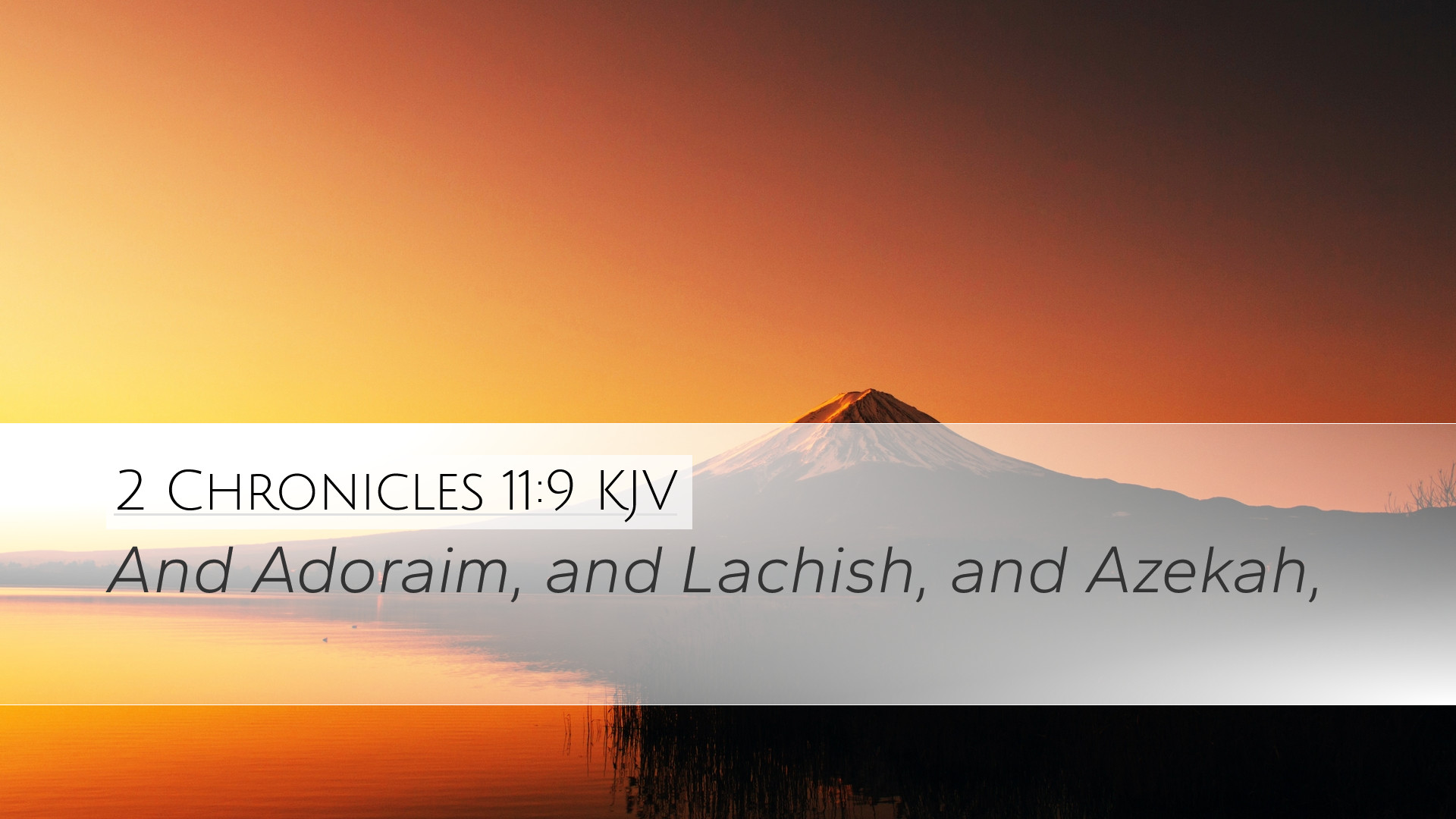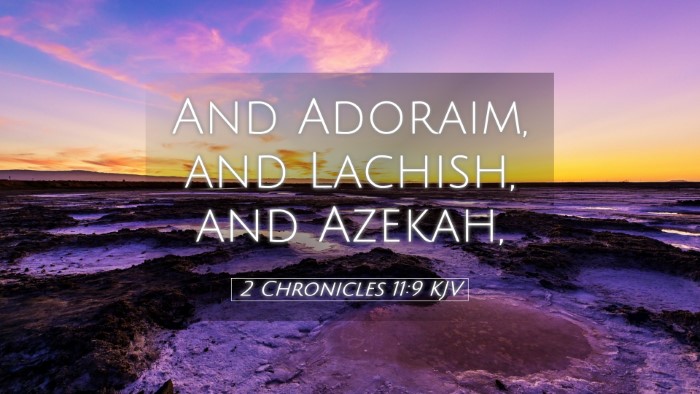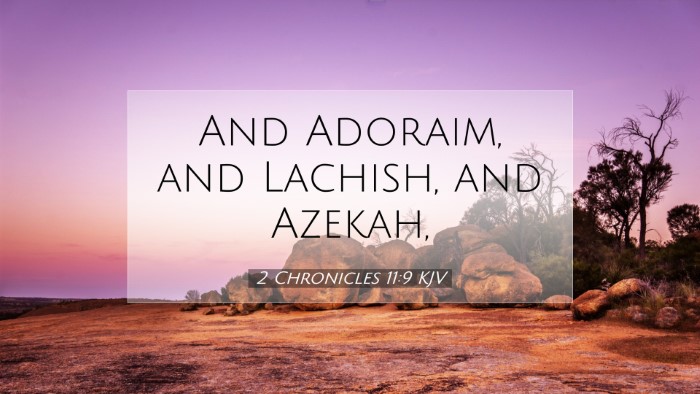Commentary on 2 Chronicles 11:9
2 Chronicles 11:9 states: "And Zorah, and Aijalon, and Hebron, which are in Judah and in Benjamin, fenced cities." This verse, though it might seem merely a listing of geographical locations, is rich in theological significance and historical context.
Understanding the Context
The book of Chronicles serves to recount the history of God's people, particularly focusing on the southern kingdom of Judah. Following the division of the kingdom after Solomon's reign, Rehoboam, Solomon's son, is left to govern the southern tribes, primarily Judah and Benjamin.
This context is crucial for interpreting the mention of Zorah, Aijalon, and Hebron. These cities were fortified to protect the people from external threats during a tumultuous time.
Significance of the Cities
- Zorah: This city, located west of Jerusalem, played a significant role in the history of the Israelites, particularly in the life of Samson. It symbolizes the need for divine protection amid societal chaos.
- Aijalon: Aijalon is noted for its strategic position and is linked to the famous battle where Joshua commanded the sun to stand still. It reminds us of God’s intervention in battles, affirming the belief that divine assistance is paramount.
- Hebron: This ancient city, associated with Abraham and the patriarchs, signifies heritage and the covenantal promises of God to Israel. It solidifies the theological understanding of God’s faithfulness through generations.
Theological Insights
The Chronicler emphasizes the importance of these cities not merely as physical strongholds but as symbols of God’s protection over His people. Each city represents a facet of the relationship between God and Israel:
- Divine Protection: Fortifications serve as reminders that God is our protector. Just as cities need walls, believers need the protection of God’s grace and mercy in spiritual warfare.
- Historical Significance: The historical lineage attached to these cities encourages reflection on God’s unchanging nature amidst changing circumstances.
- Spiritual Foundations: The need for fortified cities in the physical realm speaks to the necessity of strong spiritual foundations built on the Word of God.
Insights from Matthew Henry
Matthew Henry notes that these cities were strategically fortified by Rehoboam as a response to the potential threats looming from Jeroboam’s newly established northern kingdom. The Chronicler presents these cities not only as places of refuge but as symbols of stability in a period of instability.
Henry emphasizes that God’s providence is evident in the preservation of His people despite external challenges. He brings to light that even amid adversity, God's plans are fulfilled and His people are shielded.
Perspectives from Albert Barnes
Albert Barnes elaborates on the geographical and military importance of these fortified cities. He explains that their strategic significance is paramount in understanding the military posture of Judah against Israel. Barnes points out that the fortified cities are a testament to Rehoboam's attempts to maintain control and persuade the people of Judah of their security under his rule.
Furthermore, Barnes morally applies the message of fortification of cities to the need for believers to protect themselves spiritually from the encroachments of sin and error.
Insights from Adam Clarke
Adam Clarke provides a thorough examination of the actual construction and significance of these cities. He denotes that their structure and strategic locations symbolize the wisdom required for leadership as Rehoboam sought to secure the southern kingdom. Clarke draws parallels between physical fortifications of cities and spiritual vigilance that Christians must uphold in their lives, urging them to seek wisdom in all decisions.
Conclusion
2 Chronicles 11:9, while simple, opens the door to deeper reflection on the nature of God’s protection, the historical context of God’s people, and the importance of spiritual vigilance. Pastors, theologians, students, and scholars alike can derive significant insights from this verse as it encapsulates the timeless truth of God’s sovereignty and the necessity of safeguarding one’s faith in a world fraught with challenges.


